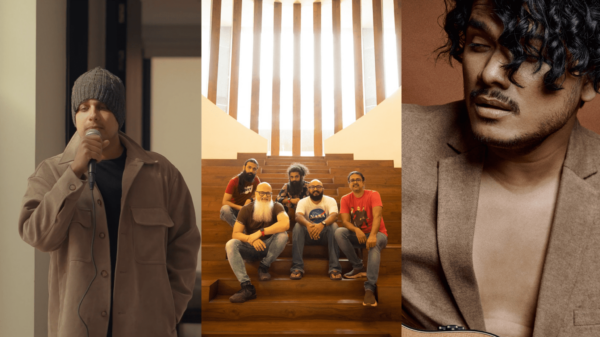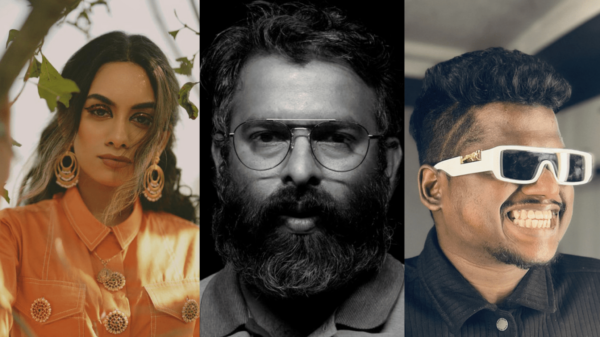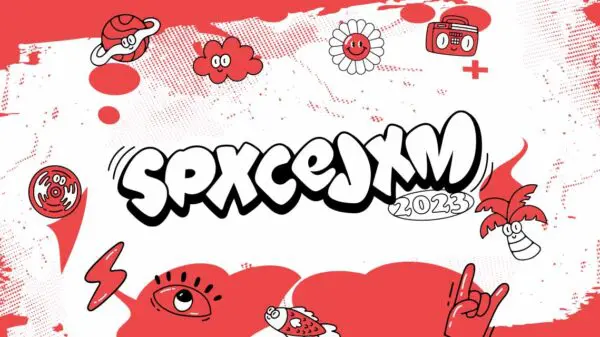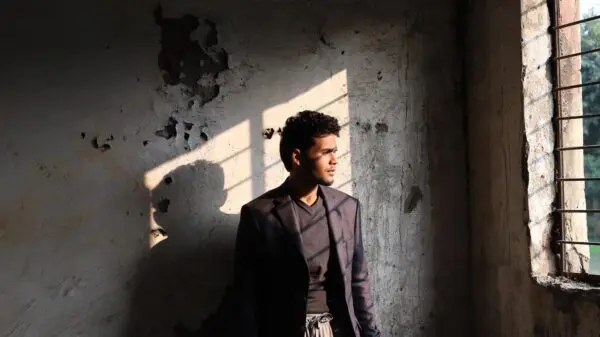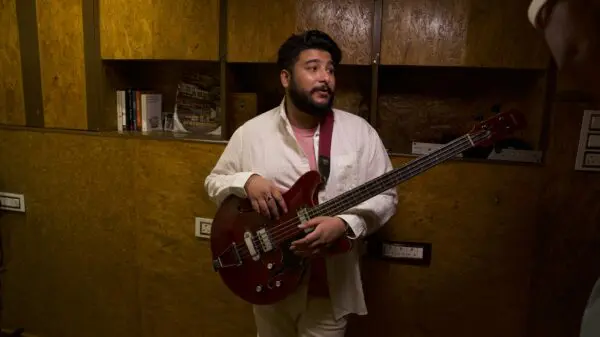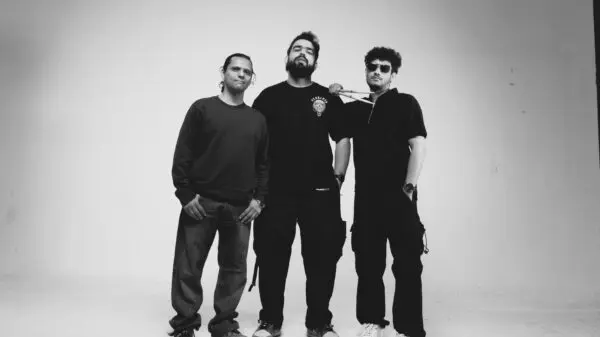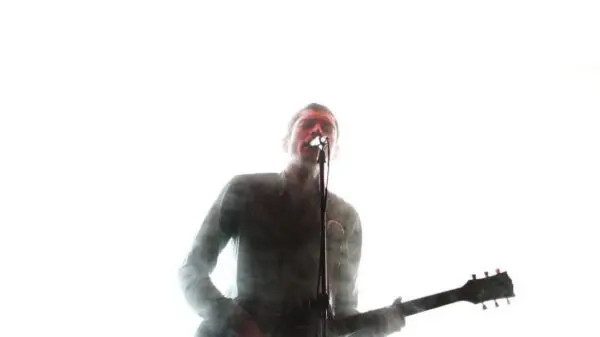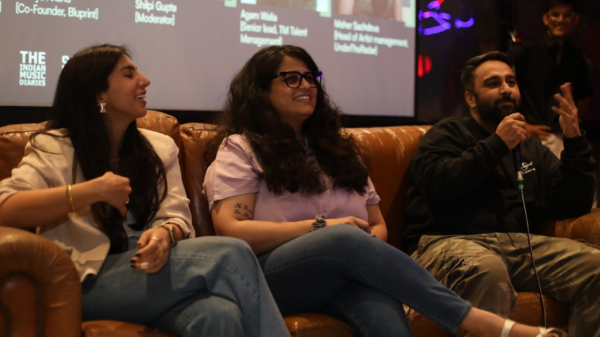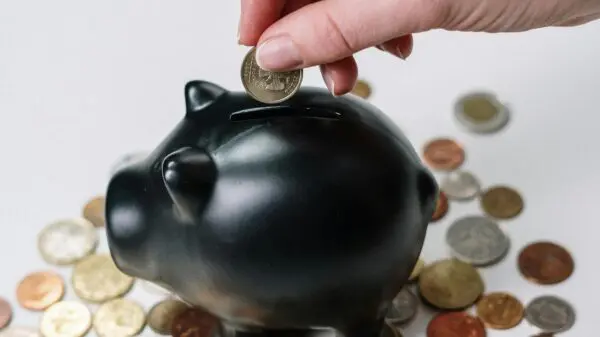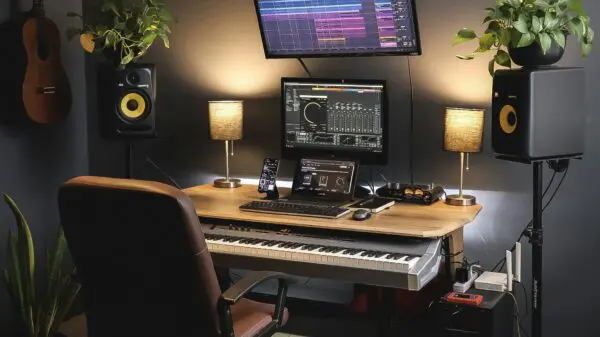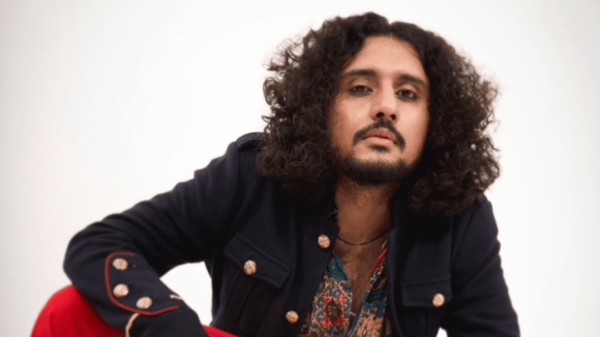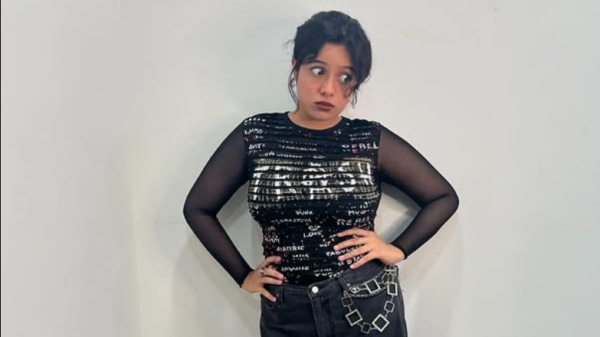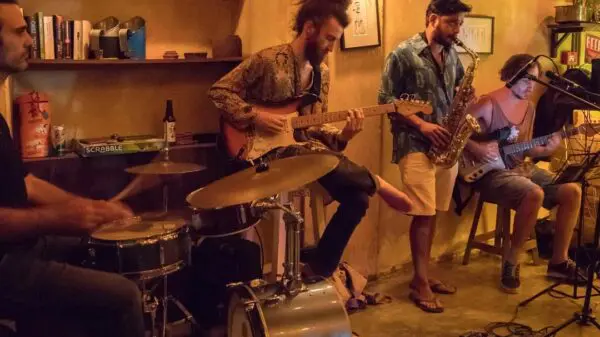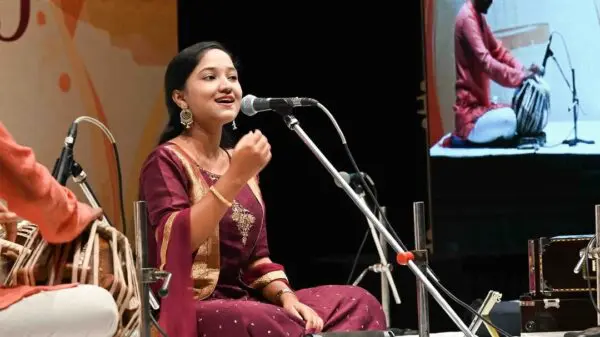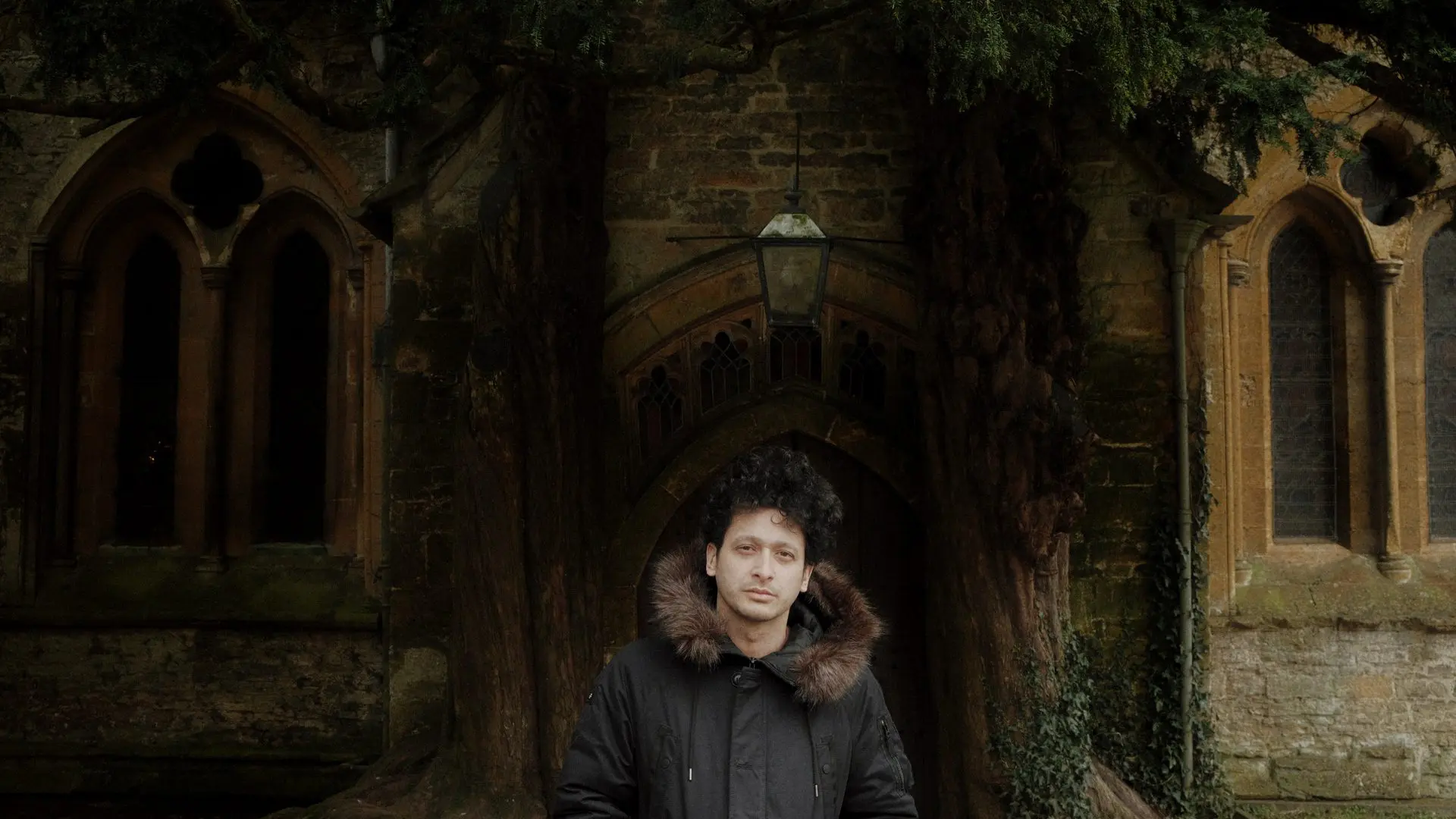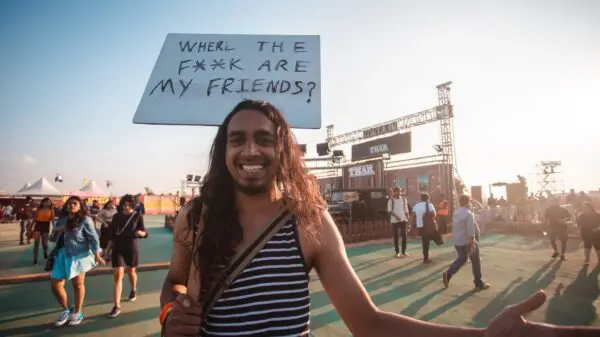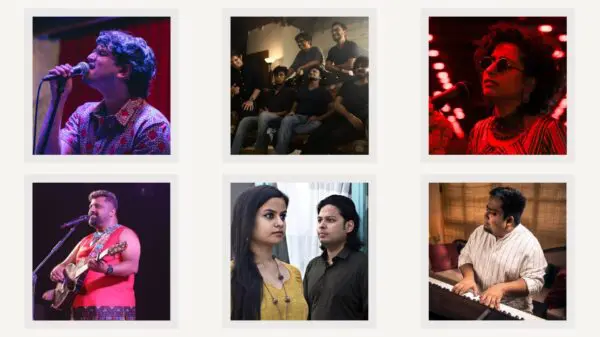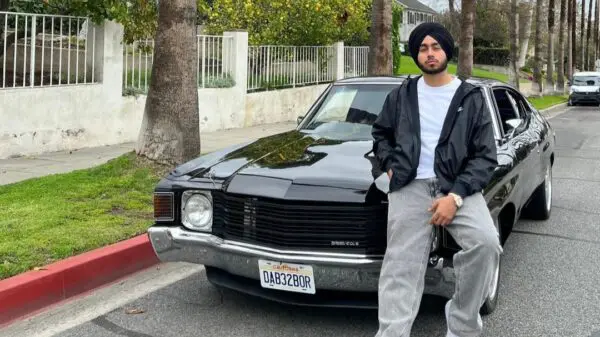Widely recognised as one of Nepal’s most significant indie singer-songwriters, Ankit Shrestha captivates his audience with his raw and unfiltered approach. Weaving melodies both in Nepali and English, his music oscillates between melancholy and ease, narrating universal stories. In a conversation with The Indian Music Diaries, Ankit talks about his music and his latest single ‘Winter.’
1. Tell us a bit about your project. How did you begin your journey as a singer-songwriter?
Music has always been a huge part of me, right from when I was a kid. I remember scribbling down songs during my school days though I mostly kept them to myself. As a teenager, I was part of a few bands where we started making more original music. I gravitated towards creating melodies and arranging the music, while a friend of ours handled the lyrics. It was like putting together a puzzle, matching words with melodies and rhythm, and through that, I began to really understand the craft of writing a song.
The real shift happened when I moved to the US. That first summer in 2013, I started busking and sharing some of my songs on YouTube. That’s when I truly embraced the path of a singer-songwriter. It felt like everything I’d been working towards was starting to come together.
2.Which bands/artists were your first love and who is your biggest influence?
I remember listening to Satabdi by 1974 AD, a Nepali band from Kathmandu, that was the first album I ever listened to. My cousin gave me the cassette which I would play all the time.
I have a distinct memory of listening to Pearl Jam’s cover of Last Kiss, me and my brother listened to that song on repeat the entire night.
As for the artists and bands that left a lasting impression on me during my formative years, I remember listening to bands like The Eagles, Guns N’ Roses, Blink 182, System of a Down, and Mudvayne.
Later on, some of the artists that I listened to were Alt-J, Ben Howard, Sigur Ros, Joni Mitchell, Bon Iver, etc. Each of them, in their unique way, captivated me and significantly influenced my musical journey.
3. You recently released a single, ” Winter.” Tell us a bit about it. What’s the song about?
I wrote the song during a snowstorm in New York City when the entire city was pretty much shut down. The snowstorm was so bad that we were stuck inside our apartment, and that’s when the song started.
I think it’s just about that experience of winter in the city and the constant search for warmth during that time. A few days into the storm, the sun finally broke through the clouds, and I guess that’s what the song represents, reminding us that even in dark times hope and light shine through, brighter days are always ahead.
4.What is your music-making and recording process like?
My music-making process is quite organic and often starts with me just playing around on the guitar. If I stumble upon a nice chord progression or a guitar melody, I’ll start humming along, maybe jot down a few lyrics, and record a rough snippet on my phone. My phone is actually filled with these kinds of snippets. I take my time fleshing them out into more complete ideas.
I find that I often get a lot of ideas when I’m traveling, especially when I’m seated by the window on a moving train. With instrumental music playing in the background, I start writing whatever comes to mind.
Sometimes, a random thought, theme, or prompt will hit me, and I’ll jot it down, exploring it later to develop into a full-fledged song. It’s all about staying open to the inspiration that’s all around us.
When it comes to the actual production, after I’ve got the guitar and vocal lines down, I start brainstorming the song’s direction. The production style really depends on where I want to take the song. As for recording, I do most of it at home and sometimes in the studios especially the drums, although I have attempted to record drums in my apartment before, which didn’t really go well.
5. Why do you make music? What drives you as a musician and what are your songs about?
Making music is deeply intertwined with who I am. It’s helped me through tough times, a way to really connect with people, and make sense of life’s ups and downs. For me, music has this unique power to make sense of the chaos that goes on outside and inside of us.

A personal aspect of my musical journey, something I don’t often talk about, is how music has been a lifeline in managing my anxiety. Since childhood, I used to always feel anxious, and music became a form of solace. This became even more pronounced after moving to the US, where my anxiety got worse. In such times, music offered me a sense of belonging, a community of individuals facing their own battles, and it was in this space that I found my voice.
I’d say, the drive to create music comes from a desire to share my experiences, my struggles, and my journey, with the hope that it might resonate with someone else. My songs are about, perhaps offering comfort or understanding to others who might feel isolated in their challenges. So, music is not just an art form but a medium of connection, for me.
6.Which Indian bands or artists do you admire? And why?
Lately, I’ve been diving into the music scene in India and finding some truly amazing artists. Growing up, my exposure was limited, though I vividly recall my dad playing Kishore Kumar, Mohammad Rafi, and Lata Mangeshkar on his cassette player. I remember stumbling upon Lucky Ali, his songs struck a chord with me, and I find his work incredible.
I listen to Gauley Bhai, although they’re based in India, they sing in Nepali. I had the chance to see Peter Cat Recording Co. live in London, which was pretty cool, and recently I’ve been enjoying the music of F16s as well. So, I am really happy that I am exploring music coming out of India.
7.What’s your take on the independent music scene in India?
I think it’s an exciting time to be a part of the independent music scene in India or just to be observing it. There’s a lot of creativity; you’ve got artists experimenting with all sorts of genres, from folk and fusion to electronic, hip-hop, and beyond.
This diversity isn’t just in musical styles but also in the languages and cultural influences that these artists bring into their work. I also quite like the rise of music festivals in India. I think these festivals can serve as a crucial platform for indie artists to showcase their talent on a larger scale.
I do think, the artists need more support and encouragement, as they’re not just making music; they’re shaping the cultural narrative of contemporary India, offering fresh perspectives and sounds that resonate with a global audience.

